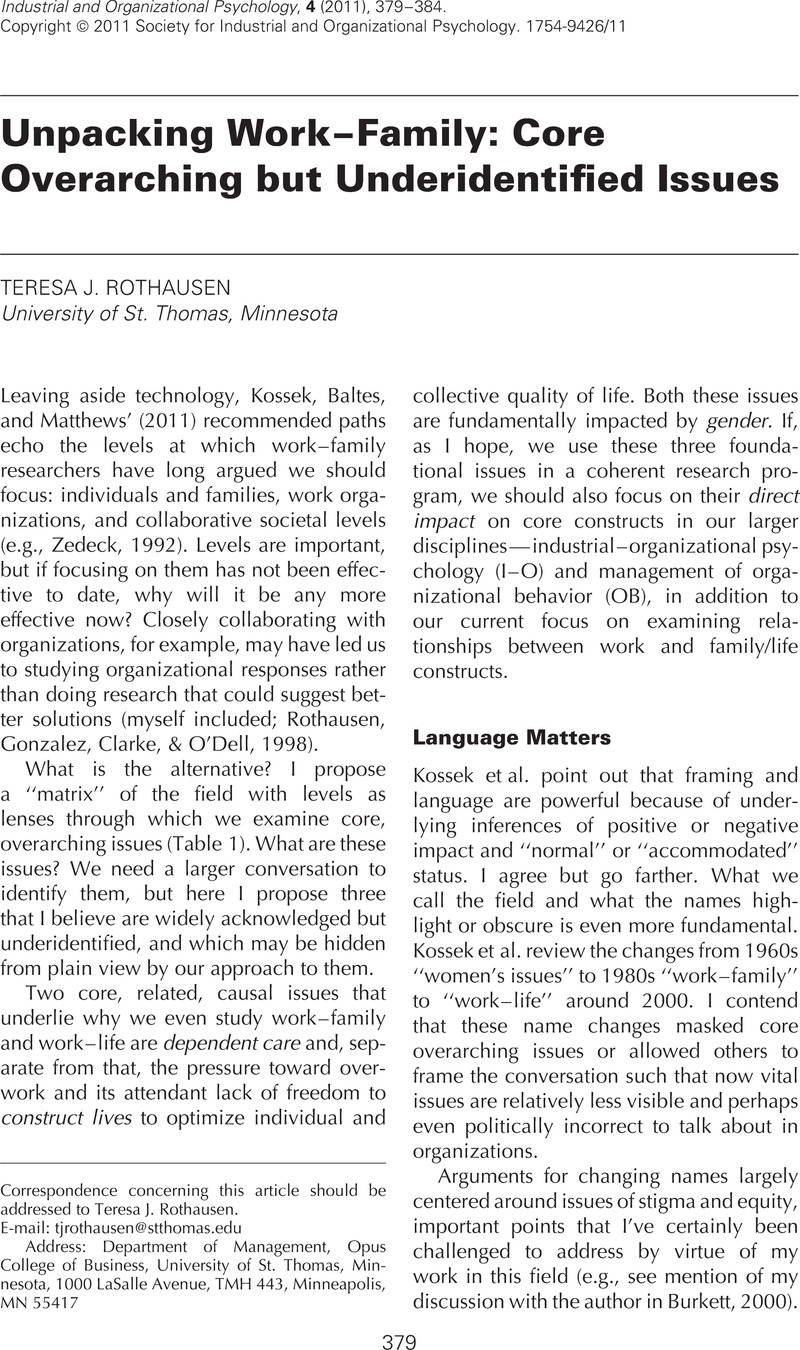Crossref Citations
This article has been cited by the following publications. This list is generated based on data provided by Crossref.
Kossek, Ellen Ernst
Baltes, Boris B.
and
Matthews, Russell A.
2011.
Innovative Ideas on How Work–Family Research Can Have More Impact.
Industrial and Organizational Psychology,
Vol. 4,
Issue. 3,
p.
426.
Shaffer, Margaret A
Sebastian Reiche, B
Dimitrova, Mihaela
Lazarova, Mila
Chen, Shoshi
Westman, Mina
and
Wurtz, Olivier
2016.
Work- and family-role adjustment of different types of global professionals: Scale development and validation.
Journal of International Business Studies,
Vol. 47,
Issue. 2,
p.
113.
Allen, Tammy D.
Merlo, Kelsey
Lawrence, Roxanne C.
Slutsky, Jeremiah
and
Gray, Cheryl E.
2021.
Boundary Management and Work‐Nonwork Balance While Working from Home.
Applied Psychology,
Vol. 70,
Issue. 1,
p.
60.
Methot, Jessica
Parker, Andrew
and
Hubbard, Alondrea
2024.
Social Networks in the Work-Nonwork Borderland: Developing an Integrative Model of Cross-Domain Multiplex Relationships.
Group & Organization Management,
Vol. 49,
Issue. 2,
p.
259.



